
Not to be confused with the Sun Records boss of the same name, Sam Phillips started her career in 1980s Christian pop. She used her birth name, Leslie Phillips, in the 1980s and was marketed as the Christian Cyndi Lauper. Based on Phillips’ raspy voice and appearance, I’m surprised they didn’t try the Christian Stevie Nicks angle.
She started her career with 1983’s Beyond Saturday Night. On 1987’s The Turning, she began working with producer T Bone Burnett. From 1988’s The Indescribable Wow, she started using her childhood nickname Sam. Her musical vision is distinctive, mixing a husky voice, economical songwriting, and Burnett’s rootsy production – in combination it often recalls mid-1960s Beatles. Phillips’ later albums are mellower, with hints of pretty folk and the eccentric cabaret of Tom Waits. Like her contemporary Freedy Johnston, she’s very concise – a typical Phillips album lasts little over half an hour.
Phillips has also enjoyed success writing music for television shows like The Gilmore Girls and appeared in Die Hard With A Vengeance as a mute terrorist.
Sam Phillips Album Reviews
Beyond Saturday Night | Dancing With Danger | Black and White in a Grey World | The Turning | The Indescribable Wow | Cruel Inventions | Martinis and Bikinis | Omnipop (It’s Only A Flesh Wound Lambchop) | Fan Dance | A Boot and a Shoe | Don’t Do Anything | Cameras in the Sky | Push Any Button | World on Sticks

Beyond Saturday Night
1983
Dancing With Danger
1984
Black and White in a Grey World
1985
Sam made four albums as Leslie Phillips. Based on the few tracks I’ve heard, her early work sounds like run-of-the-mill CCM, although Phillips’ voice is compelling. I’m starting this page with the fourth, The Turning, her first with T Bone Burnett.
The Turning
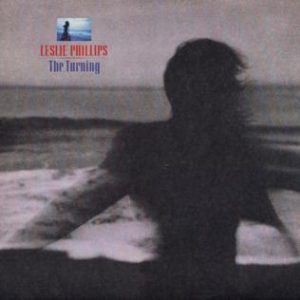
1987, 7.5/10
Leslie Phillips linked up with seasoned producer T Bone Burnett on her fourth album. It’s a marked change from her earlier work – instead of smooth keyboards, she’s working with sparser Americana arrangements. Burnett brings in veteran musicians like bassist Jerry Scheff and percussionist Alex Acuña.
There are enough traces of Christian Contemporary Music that The Turning is the Phillips album that features on Best CCM lists. In particular, ‘Answers Don’t Come Easy’ sounds like a potential CCM hit, while spiritual themes are front and centre on ‘Carry You’ and ‘God Is Watching You’. The Turning was reissued in 1997 as a Sam Phillips album – it makes sense, as it’s much more apiece with her subsequent work.
Burnett also helps with the writing – the excellent opener ‘River of Love’ was written for his own solo album but Phillips cut her own version. Arrangements like ‘Love Is Not Lost’ veer close to 1980s CCM, but the arrangements are more adventurous in other places. There’s a raw vocal, percussion, and hints of rockabilly guitar on ‘Expectations’ – The Turning must have been a confronting record for fans of Leslie Phillips’ previous work.
The Turning essentially sets the tone for the rest of Phillips’ career – dignified arrangements and succinct, subtle songs.
The Indescribable Wow

1988, 8.5/10
The Turning set the tone for her subsequent career, but The Indescribable Wow isn’t typical for Phillips. As the joyful title and bright pink tones of the cover suggest, it’s unusually upbeat. She’s often blending upbeat music with dark lyrics, so there are moments like the disarmingly joyful breakup song ‘I Don’t Want To Say Goodbye To You’. Even when the lyrical content becomes extremely dark, like ‘Remorse’, it’s not mirrored by the music. The Indescribable Wow was Phillips’ first album as Sam Phillips and her first for a secular label. Burnett, who would shortly marry Phillips, returns as producer – with more of a pop flavour to this record, there’s an identifiable late-1980s sheen to some of the tracks.
The distinctive flavour of The Indescribable Wow is provided by the big-sounding, upbeat pop songs that aren’t to be found elsewhere in her discography. Her vocals sound great on the big choruses of ‘What You Don’t Want To Hear’ and the Beatles-evoking ‘I Don’t Want To Fall In Love’. The mellow songs are excellent too – the dreamy ‘What Do I Do’ and the shuffling close ‘Out of Time’ are both gorgeous.
The Indescribable Wow provides a unique angle on Phillips, emphasising upbeat tempos and hooks.
Cruel Inventions
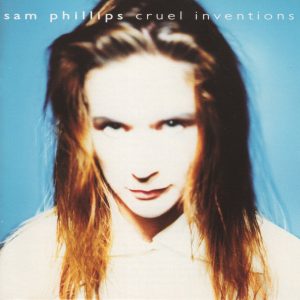
1990, 7.5/10
Compared with the sometimes joyful pop of The Indescribable Wow, Cruel Inventions is a more typical Phillips effort, sparer and more contemplative. T Bone Burnett and his usual crew are back, with a couple of significant additions – Marc Ribot and Elvis Costello both guest on guitar. The mellower sounds of Cruel Inventions necessitate more orchestral instruments than before – the Sid Page strings, Sandy Bull on oud, and the Chamberlin keyboard, played by Phillips, Burnett, and Van Dyke Parks, are all utilised.
Cruel Inventions isn’t all low key – opener ‘Lying’ is built around a dirty and effective guitar riff. Closer ‘Where The Colours Don’t Go’ is lushly harmonised and orchestrated folk-rock, and it’s lovely. In between, Cruel Inventions is more subdued, with Phillips opting for abrasive textures and melodies on tracks like ‘Go Down’ and ‘Tripping Over Gravity’. ‘Standing Still’ is built around an energetic piano part, while ‘Private Storm’ is a great showcase for Phillips’ distinctive and intricate multi-tracked vocals.
Sam Phillips was making fascinating pop records in this era – Cruel Inventions is a tougher listen than the albums that bookend it, but it’s still full of interesting ideas.
Martinis & Bikinis
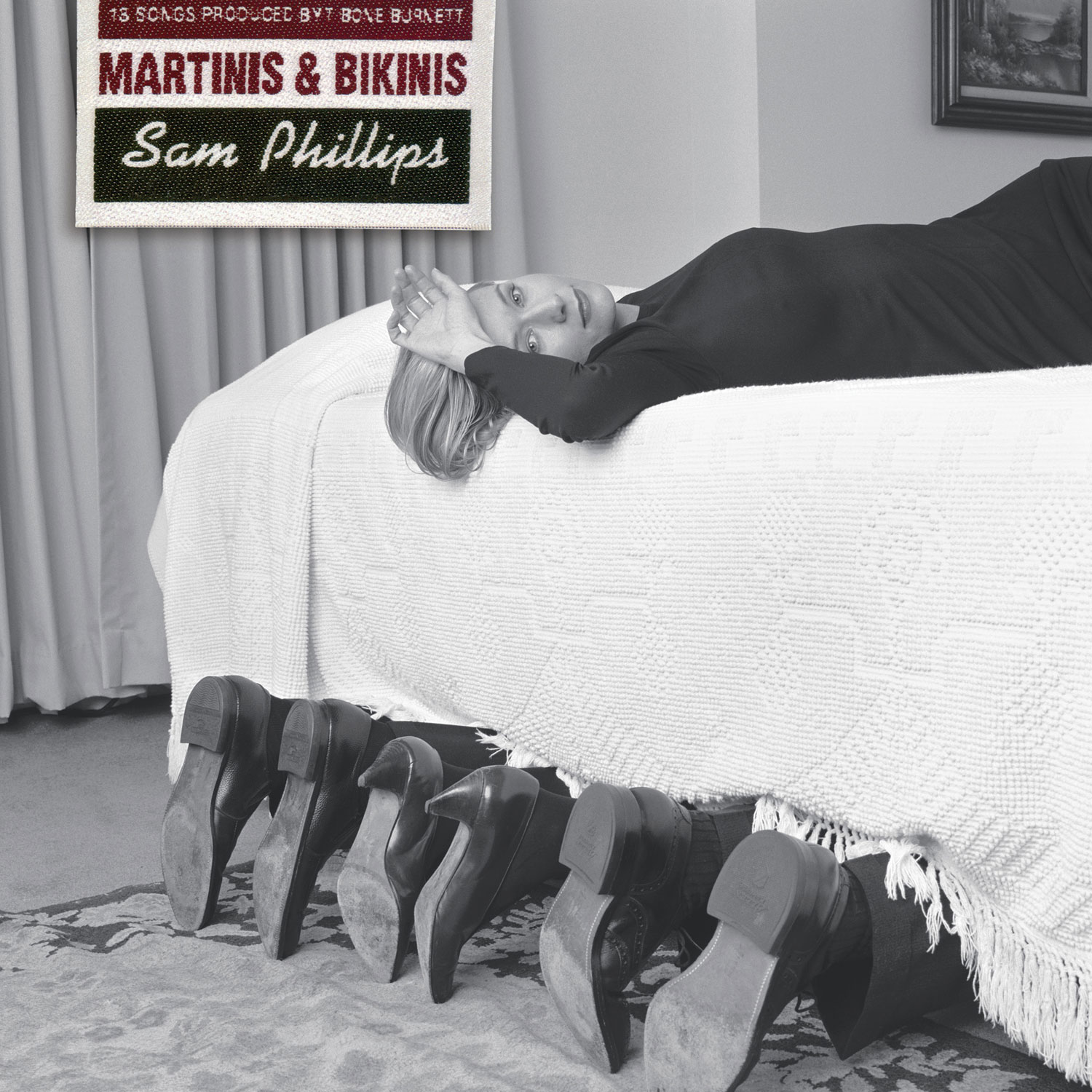
1994, 9/10
The Beatles seem like a constant presence in Phillips’ music – her economical songwriter, touches of psychedelia, and a husky voice with an air of knowing that’s sometimes reminiscent of John Lennon’s. The Beatles influence is most obvious on Martinis & Bikinis – there’s even a concluding cover of John Lennon’s ‘Gimme Some Truth’. Phillips’ husky voice is surprisingly reminiscent of Lennon’s, while XTC’s Colin Moulding’s bass lines are squiggly and melodic in the same way as Paul McCartney’s and there are arrangement touches like backwards strings (‘I Can’t Please You’). It’s not fair, however, to write off Martinis & Bikinis as a mere Beatles knock-off, though; these songs are memorable on their own terms, and Phillips’ artistic voice is convicting and real.
Rather than the trippy peace and love vibe of late-period Beatles, there’s a strong undertone of anger and frustration to many of these songs, whether it’s the environmental protest of ‘Black Sky’ (“Forests raped into deserts/We won’t stop till we’re underneath a black sky”) or the personal dissatisfaction of ‘I Need Love’ (“I need love/Not some sentimental prison/I need God/Not the political Church”). This emotion is channelled into catchy choruses – it’s easy to scan down the list of songs and recall the hook line for each instantly. It’s impressive how many distinct songs Phillips’ is able to create without deviating from the verse/chorus song with trippy production formula; the only misstep is ‘Baby I Can’t Please You’, which wastes a great arrangement and melodic verse on an irritating, mantra-like chorus.
Regardless, Martinis & Bikinis is a great little record that sits in its own little musical landscape, outside of whatever else was happening in 1994, and since it’s virtually a second-hand record store staple, it’s well worth picking up.
In interesting trivia, the photographs in the artwork of Martinis & Bikinis led to Phillips’ casting as a mute terrorist in Die Hard: With a Vengeance.
Omnipop (It’s Only A Flesh Wound, Lambchop)

1996, 5.5/10
Sam Phillips was never a best-selling artist but Martinis & Bikinis was a successful record by her standards, selling 100,000 copies. Any career momentum was halted by the dark weirdness of follow-up Omnipop – it was neither critically nor commercially successful. Phillips later told Salon that “Omnipop seemed to be throbbing with pain. I wouldn’t want to be remembered by it, let’s put it that way.” Phillips’ lyrics are notably less personal and poetic on Omnipop – instead, it’s often an attack of commercialism and consumerism, with songs like ‘Plastic is Forever’ and ‘Compulsive Gambler’.
There’s one great psychedelic rocker buried in the midst of Omnipop, however. The rawness of ‘Power World’ works perfectly with Phillips’ sardonic voice, and “Our ideas of perfect are so imperfect” is a surprisingly effective chorus. There’s also a fun foray into cabaret with ‘Zero Zero Zero!’. But some of these other songs are dour – ‘Your Hands’ is probably a fan favourite with its intense six-minute running time, but it’s not comfortable listening, while ‘Where Are You Taking Me’ is abrasive blues. And even some of the catchiest songs have abrasive and confrontation choruses like ‘Entertainmen’ and ‘Plastic Is Forever’.
Omnipop is a fascinating record, but it’s not always enjoyable to listen to.
Fan Dance
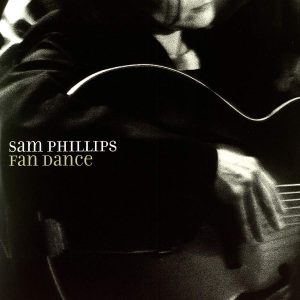
2001, 8/10
There’s a lot separating Fan Dance from its predecessor, Omnipop. Motherhood, a five-year break between albums, and a new record label all make Fan Dance feel like a career reboot. It’s also stylistically different – where Omnipop was confronting, Fan Dance is relaxed, its folk-rock sound bringing out the prettiness in Phillips’ music. Despite the change in sound, Fan Dance was made with a similar team to Phillips’ previous work – T Bone Burnett produces, and Jim Keltner and Marc Ribot are among the musicians. Gillian Welch and Dave Rawlings also contribute, and their rustic yet elegant Americana is more akin to Phillips’ new direction. As indicated on the cover, Phillips’ guitar is more prominent than before, allowing her more input into the musical direction.
Some of Phillips’ songs here are gorgeous. She’s never sounded as beautiful as she does on delicate folk-rockers like ‘How To Dream’ and ‘Love Is Everywhere I Go’. It’s easy to imagine ‘Wasting My Time’ as a jarring little rocker on one of her previous albums – here it’s decorated by strings that add depth without taking away the edge. I probably don’t pay enough attention to Phillips’ literate and intelligent lyrics but “Nostalgia, isn’t what it used to be” from ‘Taking Pictures’ is a great line. As well as folk, Phillips is edging closer into Tom Waits territory – with Ribot on guitar, songs like ‘Incinerator’ and the title track resemble Waits.
Fan Dance is a successful career reboot for Phillips, after the dead-end confrontation of Omnipop, setting the tone for her 21st-century work.
The same year as Fan Dance, the Burnett-helmed soundtrack to O Brother, Where Art Thou? topped the Billboard 100 – Phillips contributed some last-minute vocals.
A Boot and a Shoe

2004, 7/10
Where Fan Dance signalled the beginning of a new era, A Boot and a Shoe signals the end of another. Phillips and Burnett divorced shortly after its release, and it’s a meditation on the dissolution of their marriage. Much of the focus is on the lyrics, with lines like “I was broken when you got me/With holes that would let the light through.” Despite the separation, Burnett is still involved, producing and playing bass.
While it’s drawn from a similar palette, I find A Boot and a Shoe less musically satisfying than Fan Dance – the tunes aren’t as memorable. It’s sometimes gorgeous – ‘Reflecting Light’ is like Phillips’ take on a torch song. The songs are often simpler than usual for Phillips, repeating phrases like mantras – “help is coming/one day late” is one memorable couplet.
A Boot and a Shoe is fascinating lyrically, but Phillips has written more interesting tunes.
Don’t Do Anything
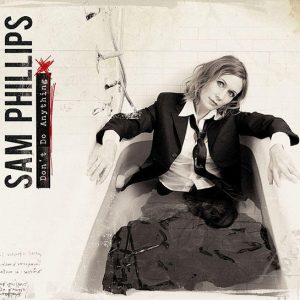
2008, 8/10
During their marriage, Phillips had picked up production skills from Burnett – to her credit, Don’t Do Anything is a natural progression in her career. She uses musicians from her touring band on Don’t Do Anything – drummer Jay Bellerose and guitarist/multi-instrumentalist Eric Gorfain (Phillips’ second husband) appear on most tracks. Unusually, there’s barely any bass on the record, leaving Bellerose free to explore unusual rhythms. Phillips leans more heavily on her own instrumental skills than before – she’s the only guitarist on the guitar-heavy title track. While previous albums achieved abrasive moments through Phillips’ vocal performances, here there’s often a juxtaposition with pretty vocals against tough guitars.
Burnett remained a fan of Phillips songwriting, and had already cherry-picked album highlight ‘Sister Rosetta Goes Before Us’ for the 2007 Robert Plant and Alison Krauss album Raising Sand that he produced. While ‘Sister Rosetta’, with its freewheeling fiddle from Gorfrain, is the clear highlight, she’s often most striking against the tough guitars on songs like the title track and ‘My Career in Chemistry’, the latter surprisingly close to punk in places. Phillips is on piano for pretty moments like ‘Another Song’ and ‘Flowers Up’.
Don’t Do Anything is an impressive record, Phillips thriving as a producer and musician.
Cameras in the Sky

2011, 6.5/10
In 2009, Phillips launched the Long Play project – for a subscription of $50, subscribers received a plethora of digital content from Phillips including photos and a blog. As well as 5 EPs, including a Christmas record (an expanded version is now available on Spotify as Cold Dark Nights) they also received the full-length album Cameras in the Sky. The project aimed to bring some immediacy back to Phillips’ music – fans could receive songs as soon as they were recorded, rather than have them bogged down in record company politics for a few years.
Cameras in the Sky continues the spontaneous and natural sound of Don’t Do Anything, although it’s a more mellow set of material. Opener ‘Tell Me’ is even more succinct than usual for Phillips, fitting a seemingly fully-fledged song into a minute’s running time. The spooky title track is my favourite cut, and the strings of Eric Gorfrain’s Section Quartet sound gorgeous on ‘So Glad You’re Here’.
Despite the adventurous nature of the Long Play project, Cameras in the Sky feel like Phillips has settled into a musical routine after a career of restless change.
Push Any Button

2013, 7.5/10
After the conclusion of the Long Play project, Phillips kept writing songs. She told PopMatters that “it’s a bit more pop and not as dark as some of the Long Play thing, so that can get too sugary for some people. I have these two sides to my personality and I keep flipping back and forth, so I can never tell.” Bellerose and Gorfrain are back – Gorfrain’s string ensemble, The Section Quartet, also return and sound lovely on songs like ‘See You In Dreams’ and ‘Going’.
Phillips is even more retro than usual – ‘When I’m Alone’ has the purity and tunefulness of a 1964 Beatles song, while ‘See You In Dreams’ sounds like a torch song from the same era, Phillips sounding gorgeous harmonising with herself over the string quartet. Phillips is sometimes abrasive too – opener ‘Pretty Time Bomb’ mixes jagged guitars with upbeat backing vocals. There’s a series of pretty ballads at the end and it’s this stretch that cements Push Any Button as Phillips’ strongest record of the decade.
Push Any Button doesn’t break any new ground for Phillips but it’s enjoyably lovely and vintage.
World on Sticks
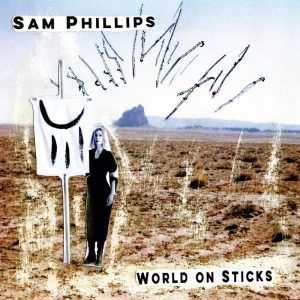
2018, 6.5/10
Environmental concerns loom large on Phillips’ tenth studio album. On the album’s Bandcamp page, Phillips states that “Troubles on the outside can be reflections of troubles on the inside. We hand big business and big tech the keys when we accept their definitions and dreams of the good life, of beauty, of success, instead of creating our own. As I wrote these songs I wanted to look at our lost connections…with nature, with mystery, with other humans and parts of ourselves.” The usual crew is back – her core band of Bellerose, bassist Jennifer Condos, and Gorfrain appear along with The Section Quartet and Jon Brion.
The most effective environmental song personalizes the issues – ‘American Landfill Kings’ is about Phillips’ father’s hoarding tendency and her wish to avoid the same habits. Accompanied by a baroque string arrangement, it’s a standout. The rockers are a mixed bag – the title track is excellent, where Phillips declares “With our world on sticks so brave, so small/I’m ready for the works so let’s have it all” while ‘I Want To Be You’ disrupts the flow of the album. The mellower tracks are lovely – Phillips sounds great with strings on beautiful songs like ‘Tears in the Ground’ and the closing ‘Candles and Stars’.
Phillips has remained creative and fascinating – I find World on Sticks her least compelling album of the 21st century so far, but it’s still worthy.
10 Best Sam Phillips Songs
Sister Rosetta Goes Before Us
Same Rain
How To Dream
River of Love
I Need Love
Lying
I Don’t Know How To Say Goodbye To You
Power World
Reflecting Light
When I’m Alone
Return to 1990s Album Reviews…
2 Comments
Leave a Reply
Related Pages
About
Aphoristic Album Reviews is almost entirely written by one person. It features album reviews and blog posts across a growing spectrum of popular music.
Review Pages
Read about the discographies of musical acts from the 1960s to the present day. Browse this site's review archives or enjoy these random selections:
Blog Posts
I add new blog posts to this website every week. Browse the archives or enjoy these random selections:
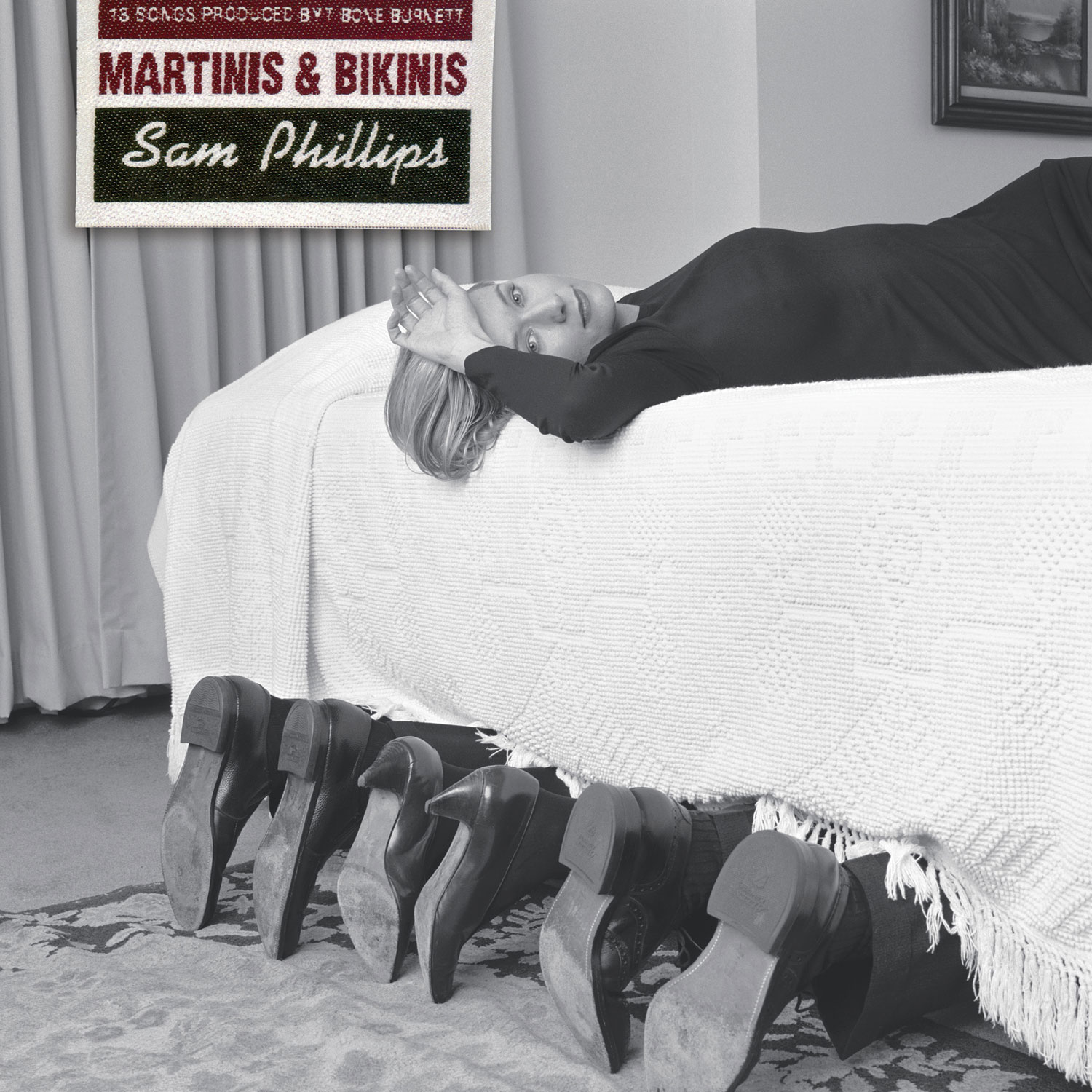


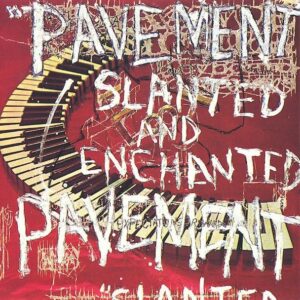
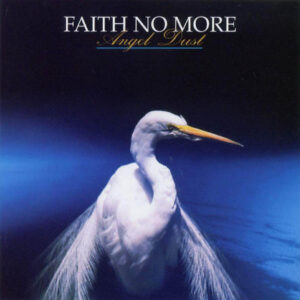
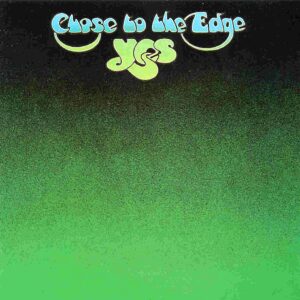







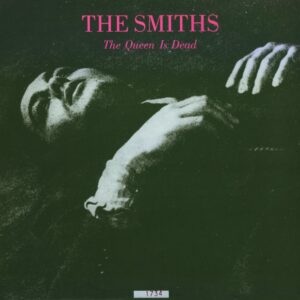
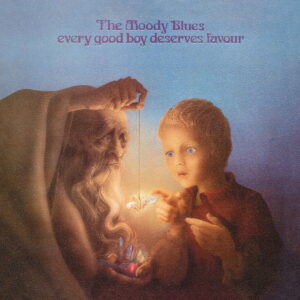









Just listened to ‘Martinis and Bikinis a while ago. Only album I have of hers. I like it. Maybe I should look into others. I came to it through T Bone Burnett.
I have most of her stuff between 1987 and 2004, and I’ll cover it sometime. At this point I think Martinis and Bikinis strikes the best balance between pop hooks and depth; the later albums like Fan Dance and A Boot And A Shoe are nice, but insular.